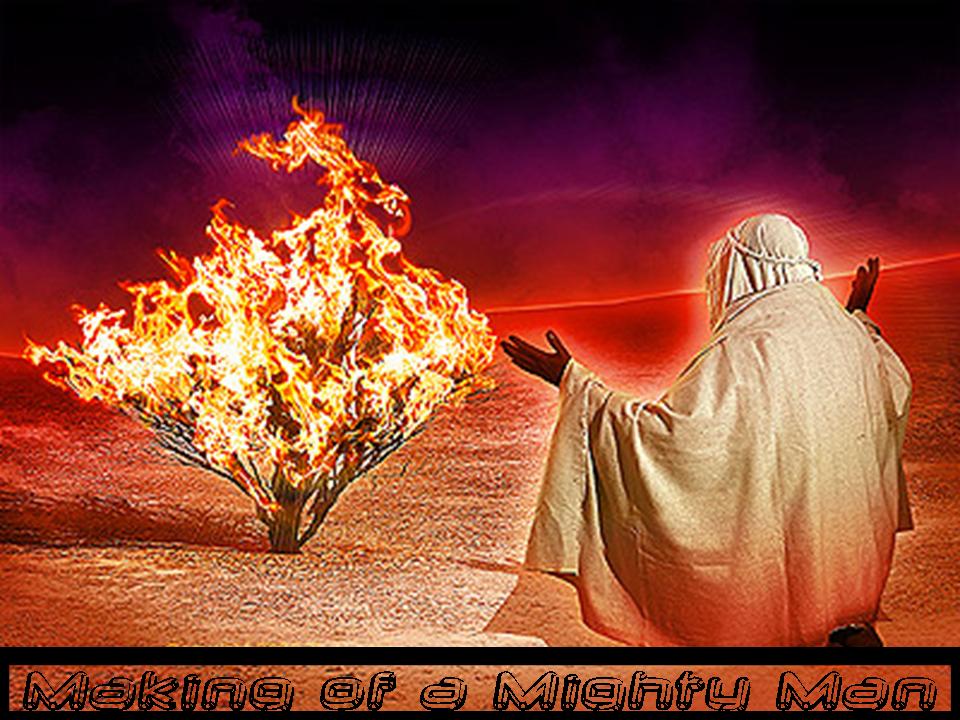Wednesday, January 20, 2016
Exodus: Now It Begins
I read Genesis through, in Hebrew, and found it to be a rich and beautiful witness of The Father and His Son, and The Holy Ghost. I have been eager to begin my study of Exodus in order to discover its treasures for myself.
I am in favor of the Word of God defining its own usage. This usage is amazing, and because of details the translators have seen as extraneous, the full power is not seen in translations. What I have read is must-share:
Exodus 3:1-7
1: Now Moses kept the flock of Jethro, his father in law, priest of Midian: and he led the flock to the backside of the desert, and came to [there are three ways to read the following words, "a Mountain of The Elohim", referring to "The Father", "a Mountain of The Gods", referring to The Father and The Son, or "the Mountain of Elohim", referring to The Son or The Father], Horeb [a place of dryness due to heat, might imply heat from God's glory].
2: And Angel Jehovah [NB: Jehovah is introduced as an Angel/Messenger] appeared unto him in flames of fire out of the midst of a bush: and he looked, and behold, the bush burned with fire, and the bush was not consumed.
3: And Moses said, I will now turn aside in order to see this great sight, why the bush is not burned up.
4: And when Jehovah saw that he turned aside to see, Elohim called unto him out of the midst of the bush, and said, "Moses, Moses". And he said, "Here am I."
5: And He said: "Draw not nigh hither: Put off thy shoes from off thy feet, for the place upon which thou standest [there are two ways to read what follows: "grounds of (the) Holy One" or "holy ground"].
6. Moreover He said, "I AM Elohim of thy fathers, Elohim of Abraham, Elohim of Isaac, and Elohim of Jacob." And Moses covered his face, for he was afraid [there are two ways to read what follows: "to look upon The Elohim", meaning, afraid to look at "The Father", or "to look upon The Gods", meaning, afraid to look upon Elohim and Jehovah together: The Gods].
7: And Jehovah said, "I have surely seen the affliction of my people which are in Egypt, and have heard their cry by reason of their taskmasters; for I know their sorrows.
It is astonishing. Both The Father and The Son, Elohim and Jehovah, came to Moses, in a sacred place in nature that functioned as a Temple. The Father spoke first, calling Moses by name, and then either He identified Himself as God of his fathers, or The Son identified Himself as God of his fathers. Then Jehovah clearly adresses Moses at that point.
It is interesting to notice how Jehovah, The Son, functions as Messenger, "Angel", to Elohim. At the time of the falling away of Adam's posterity it was Jehovah who was present to see mankind's corruption. At the Tower of Babel it was Jehovah who came down to witness it, and smite it. It was Jehovah who conversed with the (minimum) three other angels who would ascend and descend the staircase leading from the Temple, the Conduit to Heaven, down to earth, in Jacob's great vision on the Temple. And here it is Jehovah who, after Elohim's introduction to Moses (remember, Moses' faith was relatively new), addressed him as having witnessed the afflictions on the ground.
And speaking of ground, I love how The Father called His place, "grounds of (the) Holy One". I remember what The Lord told Joseph Smith on December 25, 1832, with regards to latter-day calamities: "Wherefore, stand ye in holy places, and be not moved, until the day of the Lord come; for behold, it cometh quickly, saith the Lord. Amen." (Doctrine and Covenants 87:8)
These pasages in The Bible truly come alive. And what do I learn here from? That God lives, that Jesus is The Christ, that Joseph Smith actually really did see Them, for the parallels to Joseph Smith's First Vision are astounding, especially in light of the fact that the Bible translations perhaps unintentionally melded the facts into a narrative that seems to presents One God appearing to Moses whereas the Hebrew clearly shows Two Gods appearing to Moses. Both Gods, Elohim and Jehovah, The Father and The Son, addressed the hopeful human who sought Them out, Both are glorious, and The Son does the will of The Father. Marvelous. I really needed this at this time. What a way to greet the dawn of this day.
Surely I understand that readers are at liberty to interpret these passages in other ways. But however you choose to read these words, do bear in mind that what I have shared here today is actually textual.
Subscribe to:
Post Comments (Atom)


No comments:
Post a Comment